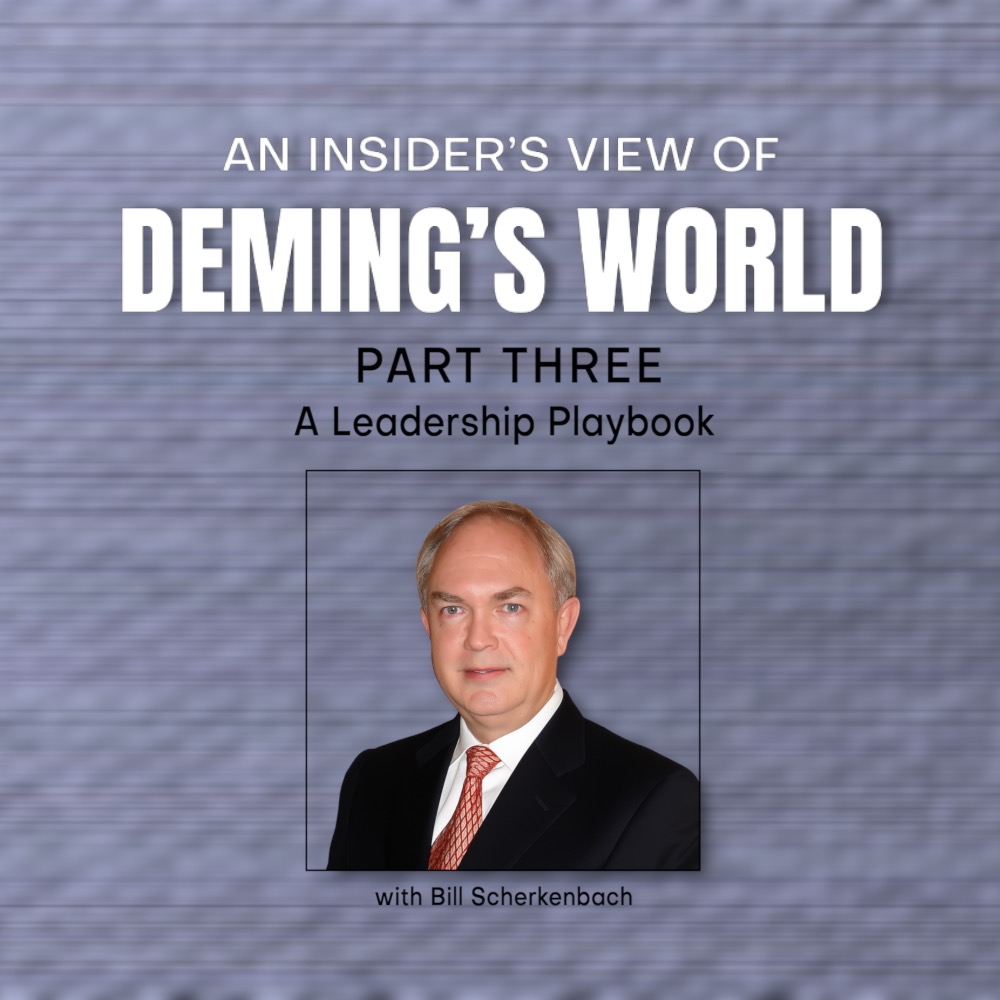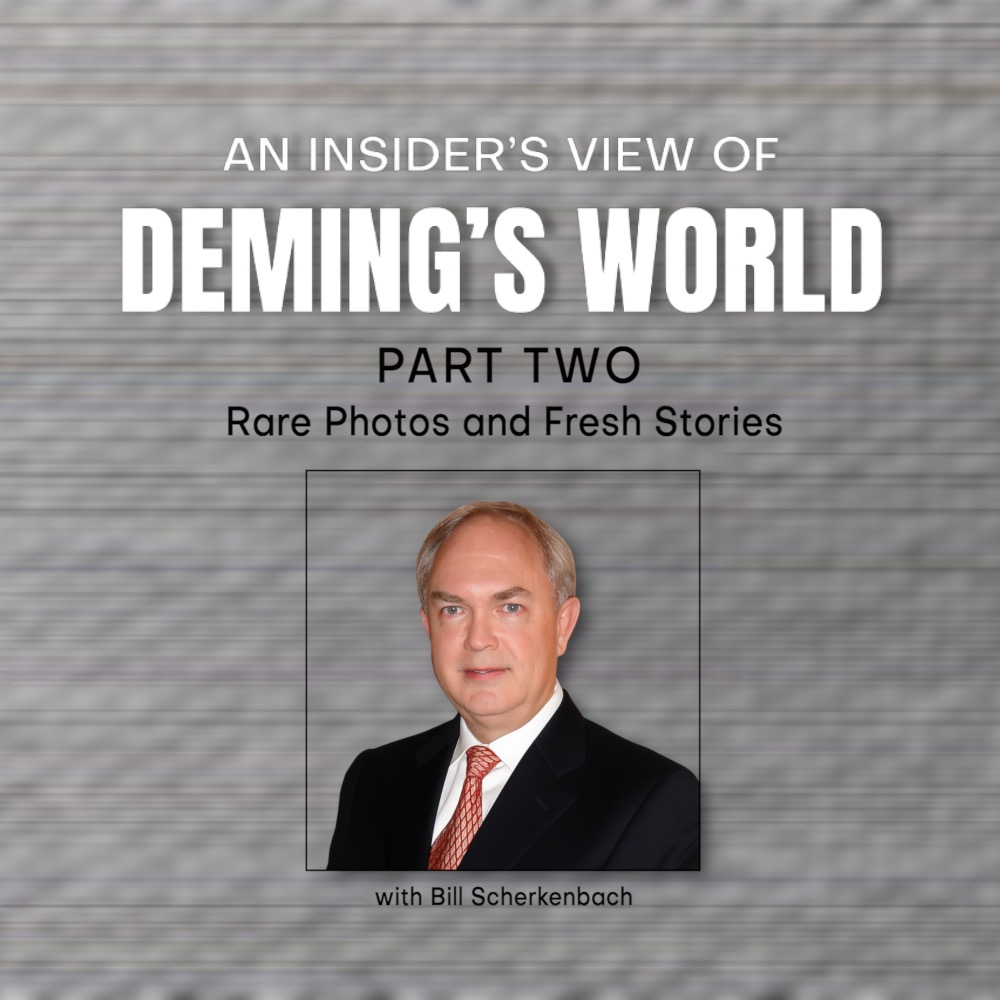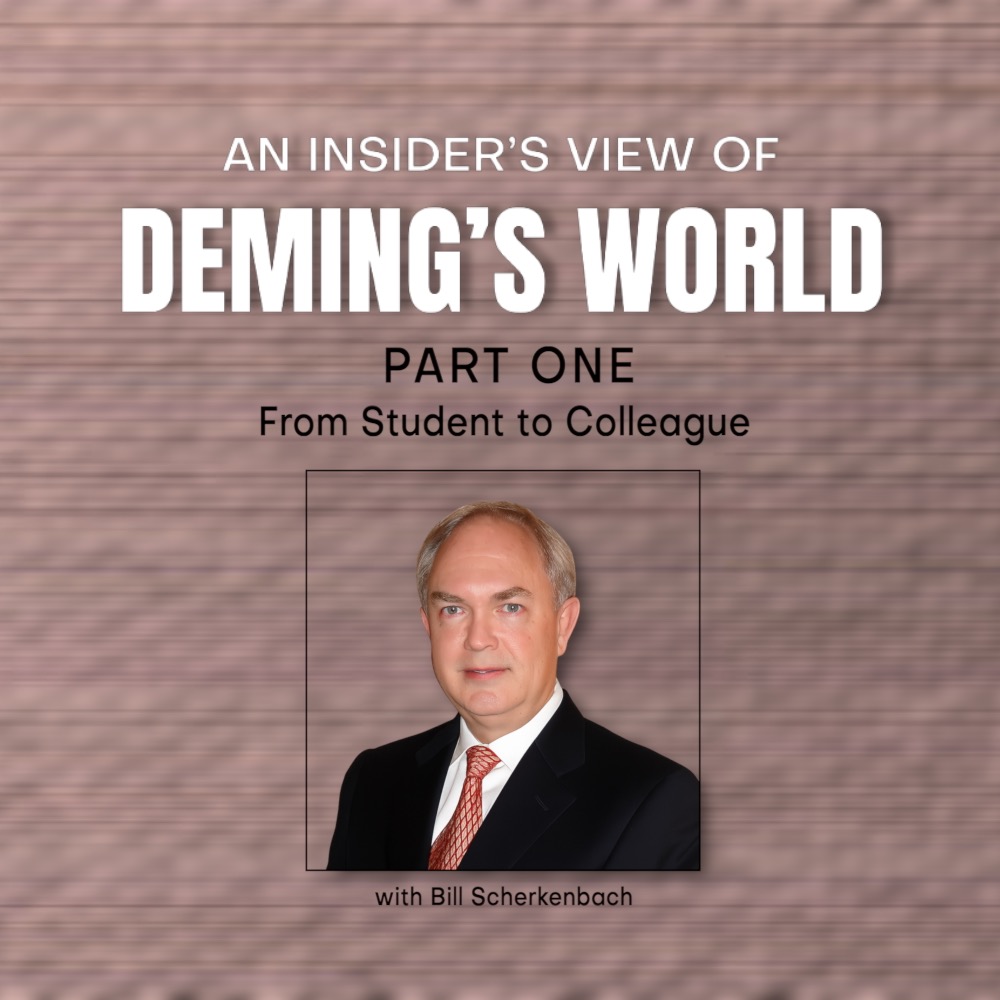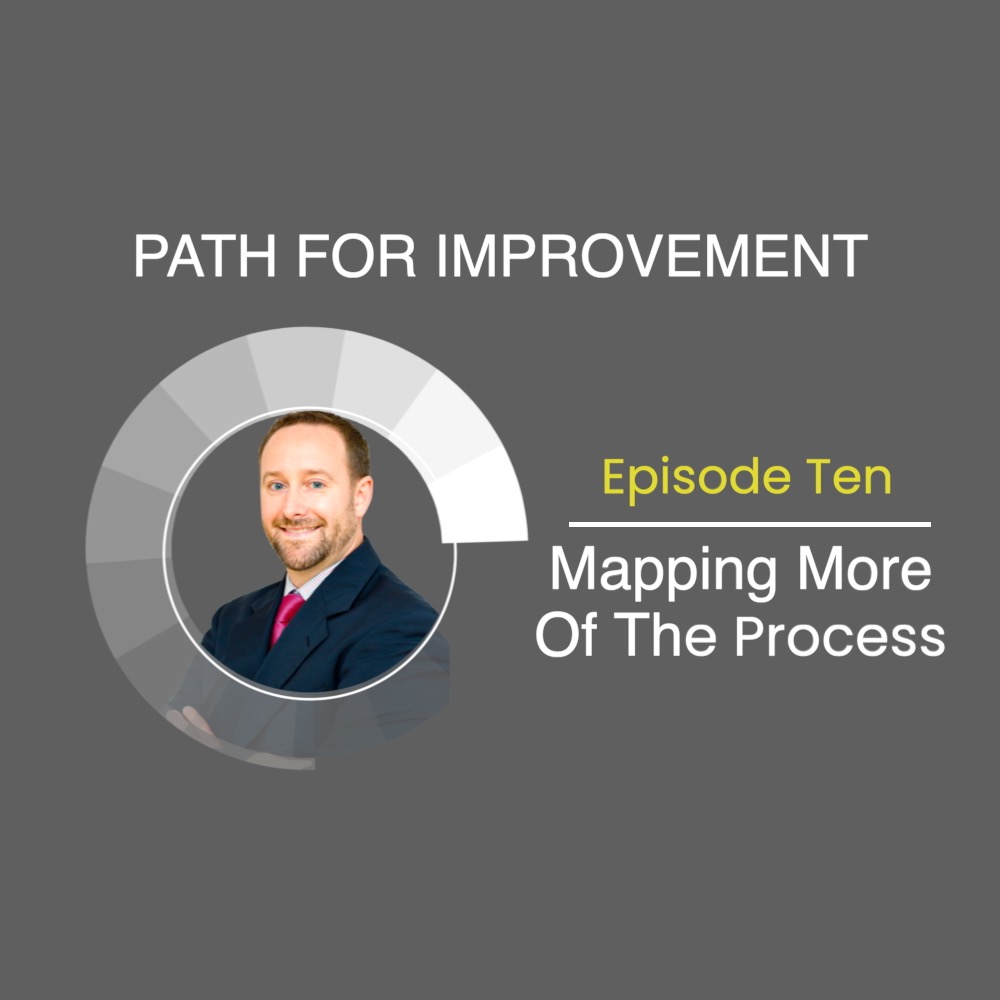A Deming Approach to Real Estate
Description
Discover how Andy Novins turns business challenges into big wins! Andy shares with host Andrew Stotz how he uses Deming strategies to outsmart competitors, watch for market shifts, and win loyal clients in one of the toughest industries around.
TRANSCRIPT
Andrew Stotz: My name is Andrew Stotz and I'll be your host as we continue our journey into the teachings of Dr. W. Edwards Deming. Today, I'm here with featured guest Andy Novins. Andy, are you ready to join and share your Deming journey?
Andy Novins: I sure am. Yep.
Andrew Stotz: We've done a lot of prep for this, had some good conversations, and I'm looking forward to it. Let me introduce you to the audience. Andy first got introduced to the teachings of Dr. Deming more than 30 years ago and has been hooked ever since. He attended Dr. Deming's four-day seminar in August of 1993, only four months before the passing of Dr. Deming on December 20th of 1993 at the age of 93. Andy was a co-owner of a women's athletic apparel company, which was eventually purchased by Warren Buffett's Berkshire Hathaway. For the past 23 years, he's been applying Dr. Deming's philosophy to his work in real estate, which traditionally has operated in what could be described as in opposition to the teachings of Dr. Deming. Andy, why don't you tell us a little bit about what you're doing right now and maybe a little bit about how you got into what you're doing now, and then later we're going to talk a little bit about your experience with Dr. Deming and all that. But just let us know, where are you at? What are you doing?
Andy Novins: Okay. Well, I am in Northern Virginia, just outside Washington, D.C., and after my partners and I sold the company that Andrew just referred to, I had to decide what I was going to do. And I had about six months to do that because part of the contract required me to help the purchaser, which originally was Russell Corporation, a big athletic, they made all the Major League Baseball uniforms and everything. We had to transfer my company's systems to their systems, and that was one of the worst six months of my career, watching everything we had done, which was really all Deming-based, being sort of dismantled and worked into another Fortune 500 company at the time. It was, somewhat, actually it was a few years later that Berkshire Hathaway bought it, and it was because Russell was not doing very well. It was a rescue-type purchase by Berkshire Hathaway, which sort of had some satisfaction in mind that their systems weren't all that good. So that's where I got into Deming, and I've taken a lot of what I learned from the apparel company into real estate, which, as Andrew just mentioned, is very volume-centric, volume-focused, and focusing on processes as opposed to systems.
Andrew Stotz: And in the real estate world, for those people that don't know, let's say real estate, what position are you in? For instance, my sister is a mortgage broker in Maine, and that's a different place within the whole sphere of it, but maybe you can explain exactly where you are in the value chain.
Andy Novins: Okay. We focus on residential real estate. What we call in real estate farm, okay? I send out 5,000 newsletters a month that show to eight different areas, really, but they're all within, believe it or not, two miles of my house. And those news, I've been doing that for over 20 years. I've never made a cold call. I will never call anybody and say, are you thinking of selling or anything like that. Yet, using this process, which is all really Deming-based, I've done about 10 times the volume of any other realtor in the 5,000 homes that I service. It's the process... I don't want to use process. The system we used is based on Michael Porter, his concept of competitive advantage. And it's a system that's focused on a value chain, things that we do that other people can't do. For example, there are close to 300 sales a year in my 5,000 home market. I see every one of them. And when you see a house that's on the market, you know a lot more than anybody else does by looking at pictures. If you've ever been to an open house and after seeing it on the internet, it's a lot different than what you saw in the pictures. No other agent can do that because most agents in my area focus on Northern Virginia, which would be about 20,000 transactions a year, not 300. So they can't even try to compete with me in my area. So that's the whole concept of it is doing things. As Michael Porter would say, you have a value proposition. That's my expertise in my local area.
Andrew Stotz: Porter talks about different strategies. One, he says, is the low-cost leader. Another is the differentiation. And the third one he talks about is focus and where you're focused on a niche in the market. And then I guess I always kind of think that really he's talking about two, because with focus, you're picking a niche, but then you're going to either be a low-cost leader or probably a differentiator in that focused area. But when you talk about Porter and what he's teaching, can you explain a little bit more for those people that don't know what he talked about?
Andy Novins: Sure. Yes. Basically, yes. I mean, I'll never forget. My partner and I were at a breakfast, realtor breakfast at one point, and there was an agent sitting across the table from us and he said, I just got this listing. And he said, but I had to go down to 1%. And he's, you know, for commission. And at that time, commissions were pretty much 3%. And he kind of looked at us and said, that's better than nothing, right? And that's the low-cost. Low-cost producers will never win. It'll always be somebody else. And Porter says, you can't be the best either. Okay. There's no such thing as the best realtor. There's always going to be somebody else. So the concept for real estate is picking a niche, that for me, it was farming. I'm a pretty good writer. So I write a newsletter, and people call me when they're ready to sell their house. And it's worked beautifully for... I started that in 2003. Okay. But there's people that focus on luxury, the luxury market or people that focus on first time buyers, or people that focus on... There's all kinds of different niches downsizing or upsizing. And so you can become an expert in anything. And that's how you differentiate yourself in real estate.
Andrew Stotz: And that concept of not competing to be best that Porter talks about is great because it also forces you to think. You're focused on the wrong thing if you're focusing on how to beat the competitor. And I always enjoyed the fact that Deming was so focused on the customer.
Andy Novins: Yes.
Andrew Stotz: And that, I think with Porter, I like that. But with Deming, I just really love the idea that he saw quality in the eyes of the customer. He saw innovation and continuous improvement in relation to the customer as primary over trying to benchmark off of some competitor.
Andy Novins: Exactly. And if I go back to my apparel business, the name of our company was Moving Comfort, and we just made women's apparel. Nobody else ever stuck to just that. We were the only company. Just, everybody broadened out to try to get more. So again, it's the same concept of a niche. Okay. But one of the policies, I guess, we've developed, it was a Deming related policy, which was fun, okay, was when we made a mistake, which we often did, whether we shipped somebody the wrong thing or we did other things, our objective was to make the, delight the customer, as he would say, make them happy we made the mistake. And that didn't matter what that cost to do that, sending them free stuff, doing whatever. And I think that's a Deming concept that we used in the apparel business aside from many, many others. Back to real estate, that's, I don't know anybody else in the Washington area that does what we do, because nobody's willing, that's the so-called trade-offs. Nobody's willing to say, I'm just going to focus on 5,000 houses.
Andrew Stotz: Yeah. It's scary.
Andy Novins: They can pick whatever they get.
Andrew Stotz: Yep. Yep. And maybe why don't we now go back to August of 1993. How did you find yourself in a four-day seminar? And I'm kind of jealous because what... My seminars I went to in '90 and '92 were two-day seminars.
Andy Novins: Really? Okay.
Andrew Stotz: And I had thought that he... I had thought by that time, maybe he was only doing two days, but then I learned that he was still doing four days. But what got you to that seminar? Where was it, and what got you there?
Andy Novins: Okay, I was going on vacation. Okay, this was in 1990. We were going to go to Cancun. And there's this, I guess they're still around, but there was a bookstore in DC on K Street called Reite
























